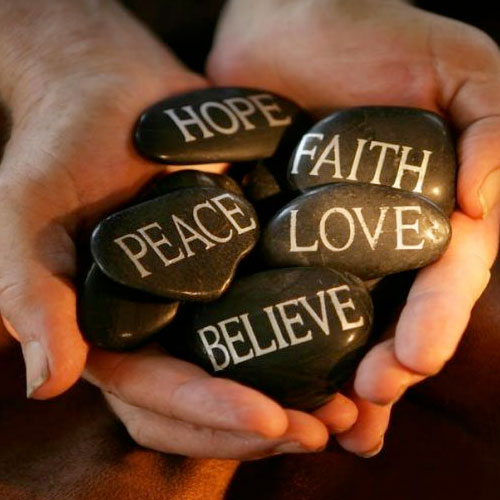Well they say seeing is believing, but as children most of us intuitively believed in things we couldn’t see: the Tooth Fairy, Santa Claus, the Easter Bunny, and monsters under our bed.
There is something within a child’s mind that believes what we are told without the burden of proof, but as we get older, doubts and questions creep in. We stay up late at night trying to catch the Tooth Fairy in the act, we set up traps for Santa, we write letters to the creature or ask our parents difficult questions.
Eventually, our parents fess up and tell the truth. We are crushed and devastated that our treats will no longer be forth coming, and sometimes we are angered that we have been led to believe a lie. Yet, almost always, deep down we knew the creature wasn’t real. Hopefully no children are listening.
When I was about six or seven, my older brother, Sam concluded that the mystical Treat Fairy who left late night snacks and coins in our duffle bags wasn’t real. He boldly asserted that he had outgrown this creature and was no longer in need of her services. I was heartbroken because I have always had a sweet tooth and was more than happy to keep the chocolates and candies coming.
Deeply wounded, I turned to my parents and demanded the truth. My parents did not want to spoil my older brother’s skepticism for me, so they told me she was. I was worried she would no longer come around, so I wrote her a letter which I still have. In the letter I wrote through tears,
“Sam doesn’t believe in you, but I still do.”
Guess what? She came that very night.
The Bible devotes quite a bit of space to talking about faith. It is mentioned over 300 times in the context of confidence, honesty, trust, and conviction. Hebrews 11:1 gives us a simple definition, “faith is being sure of what we hope for and certain of what we cannot see.” Faith is trust in an uncertain future, belief that things will be made right, and a deep abiding trust in God. Faith is a gift of the Spirit that leads to peace. Jesus commands us to have faith without needing signs and wonders, and He encourages us by saying that even the most minuscule amount of faith – the size of a mustard seed, is enough to move mountains.
Our modern culture also talks quite a bit about faith even if the context is different than the Bible. We tell people to “just have faith things will work out” or “to believe in themselves.” During the pandemic we were told to have faith in science and vaccines. Even if we naturally question and doubt, we practice faith every day – we have faith that our cars will run smoothly, that we will have food on our table, and that we will wake up the next morning.
We put faith in our professionals – the people teaching our children and grandchildren at school, the doctor and nurses at the hospital, the mechanic who fixes our car, and the restaurant chef who prepares our food.
We do not practice blind faith – we believe these things because they have proven to be the norm and because we put stock in the abilities people have acquired through job training and education.
This morning’s Gospel text evokes thoughts and feelings that have become all too familiar for many of us as we have lived through uncertain and perilous times. It’s a few days after Christ’s resurrection, but instead of celebrating, the disciples are cowering in a locked room for fear of the Jewish leaders. They whisper amongst themselves trying to process their broken dreams, dashed hopes, and disillusioned devotion. Suddenly, Jesus shows up in their midst offering peace and assurance. Jesus’s followers are filled with overwhelming gratitude, but their friend Thomas is nowhere to be seen.
Upon Thomas’s return, the other disciples excitedly tell him that they have seen the Lord. Thomas replies that unless he physically sees Jesus and touches His hands and side, he will not believe it. Well, you’ve probably all heard the phrase “be careful what you wish for and then duck” because a week later, Jesus shows up and does exactly that. When Thomas sees the risen Christ he boldly exclaims “my Lord and my God!” Jesus answers that Thomas has believed because He has seen, but there will be an even greater blessing for those who believe without seeing.
We’ve all heard the saying, “I’ll believe it when I see it”or the Millennial version “pictures or it didn’t happen.” The human condition often only feels satisfied with absolutes, assurance, signs and wonders. Thomas has gotten a bad reputation throughout history because of his disbelief, and today we hear the phrase “doubting Thomas”, but can we really blame Thomas for his request? He was not the only Bible character who questioned God, and yet we don’t talk about a doubting Nathaniel or a doubting Gideon. Rather than faulting Thomas, he is an archetype of what many of us experience in our own lives especially in the midst of uncertain futures. Thomas was only asking for what his other friends had experienced. He felt he was missing out and when Jesus showed Himself, Thomas was the first to explicitly acknowledge Jesus’s divinity.
Historically, many churches have seen doubt as negative. In early Christianity, people were taught to accept the church’s teaching without question. It didn’t help that back then books were expensive and most people couldn’t read, so the only Biblical instruction was what was given by the priest. However, according to the Bible, doubt does not necessarily equate unbelief. Rather, Scripture tells us to think critically and examine the doctrines we are given. Even the Apostle Paul told his congregation to test what he was saying and examine it through the character of God.
Today there are many people and even some churches which try to present a Gospel different from the one of Christ. It can be confusing and complicated to know what is true especially when the arguments are compelling. The Bible does not tell us to follow something blindly, but to wrestle with the texts, and yes, at times, even to doubt. In my own life, I have sometimes been troubled by a Scripture passage or a sermon, but through study and wondering, it has caused my growth.

